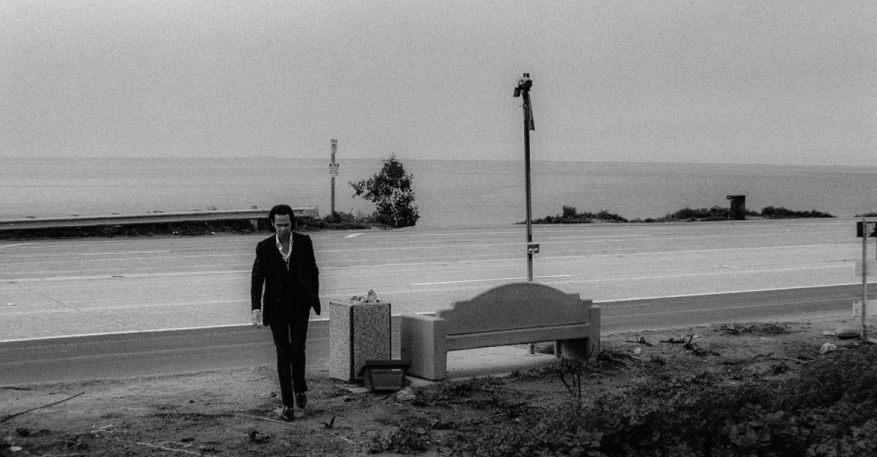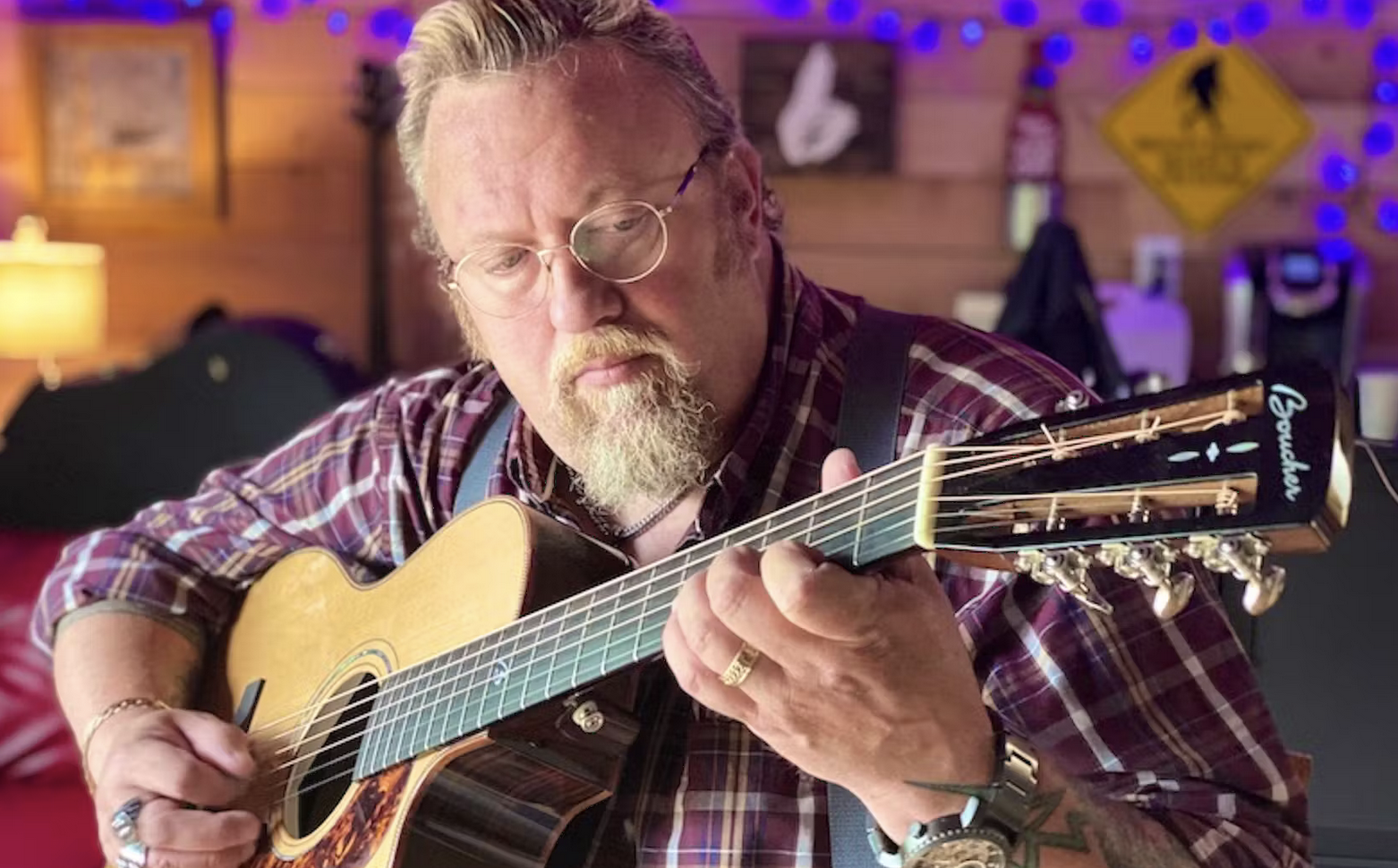BILLY BRAGG REPLIES TO THE CULTURE WARS
New Song: Rich Men Earning North of a Million
CONTENTS
- PLAYLIST: Three songs on YouTube
(Bragg’s new song isn’t available on Spotify) - ARTICLES:
Billy Bragg: Oliver Anthony’s divisive song claiming solidarity with workers only benefits the rich who exploit them
Are Culture Wars Really a Distraction? by Olúfẹ́mi O Táíwò: We shouldn’t abandon the culture wars, but we shouldn’t take the bait either. We should build a political culture built around mutual goals

Britain’s Billy Bragg started playing punk music in the late 70s. A leading proponent of the anti-folk protest song movement of the 80s, Bragg has been writing and singing songs about love and politics throughout his career
BILLY BRAGG STRIKES A RESPECTFUL NOTE IN THE CULTURE WARS WITH AN “ANSWER SONG”
It’s Labour Day and a good time to reflect on how it matters now. The short answer from tell-it-like-it-is political music maker Billy Bragg is simple: “There is power in the union”. He elaborates on the point by making an elegant contribution to the culture wars debate being waged in the US and which spills over the border.
This summer a couple of controversial US country songs embraced by right wing listeners, politicians and media have gone viral stoking debate in those divisive wars. In July, country music star Jason Aldean released the inflammatory video for his hit single Try That In A Small Town. Barely a month later, unknown Virginia singer-songwriter Oliver Anthony became the first uncharted musician to top the Billboard 100 with his conservative-populist song The Rich Men North of Richmond. Shortly after that veteran UK politico and musician Billy Bragg recorded an insightful response song called Rich Men Earning North of a Million.
What are they all singing about?
Jason Aldean: Try That In A Small town

The backdrop for Jason Aldean’s video for his hit song Try That In A Small Town is the Maury County Courthouse building in Columbia, Tenn. It was the site of race riots in 1946 and the lynching of a black man in 1927. Watch it here
An ardent Donald Trump supporter, Jason Aldean‘s message is people in small towns stand up for each other and won’t tolerate crime. In a statement accompanying the video’s release Aldean said the song represents an “unspoken rule” for those raised in small towns: “We all have each other’s backs and we look out for each other.” The lyrics say:
“Try that in a small town/ See how far ya make it down the road/ Around here, we take care of our own.”
“Got a gun that my granddad gave me/ They say one day they’re gonna round up/ Well that s— might fly in the city/ Good luck.”
The dramatic video displays scenes of social unrest, flags on fire, vandalism and police clashing with demonstrators at what appear to be racial injustice protests.
Besides the overt references to gun violence the song’s critics argue it has racist and pro-lynching overtones by using the Maury County Courthouse as a backdrop. CMT (Country Music Television) quickly pulled the video while artists like Sheryl Crow, Jason Isbell and Margo Price have spoken against it.
Crow tweeted: “@Jason_Aldean I’m from a small town. Even people in small towns are sick of violence.” she wrote. “There’s nothing small-town or American about promoting violence.”
Aldean denies that his video is provocative or racist: “There is not a single lyric in the song that references race or points to it,” he wrote on Twitter. “Try That In A Small Town, for me, refers to the feeling of a community that I had growing up, where we took care of our neighbours, regardless of differences of background or belief.”
Trump and two other candidates for the 2024 GOP presidential nomination have publicly supported the song. Florida governor Ron DeSantis said: “When the media attacks you, you’re doing something right.”
Oliver Anthony: Rich Men North of Richmond

Oliver Anthony’s song the Rich Men North of Richmond calls out the business and political elite while also taking fat-shaming swipes at people on welfare (Mike Caudill photo)
In August, unknown Virginia singer-songwriter Oliver Anthony saw his live video lament about workers’ struggles, Rich Men North of Richmond, garner 31 million YouTube views in one week. As with Aldean’s song, right wing listeners, commentators and politicians’ public approval vaulted it to No. 1 on the Billboard 100, a first for an artist with no previous chart history. The song was even referenced in the first question at the GOP presidential debate.
The song taps into universal worker concerns of low pay and hard lives while also disparaging people on welfare – most of whom in Virginia are Black. It opens with these lines:
Well, I’ve been selling my soul
Working all day
Overtime hours
For bullshit pay
So I can sit out here
And waste my life away
Further on he calls out the rich men north of Richmond for their aim of “total control” while also maligning the poor:
Lord, we got folks in the street
Ain’t got nothin’ to eat
And the obese milkin’ welfare
But God if you’re five foot three
And you’re three hundred pounds
Taxes ought not to pay
For your bags of fudge rounds
Right wing commentators have labelled Anthony’s piece as “the protest song of our generation”. Georgia Republican Marjorie Taylor Greene calls it “the anthem of the forgotten Americans.”
Anthony says his politics are “pretty dead center”. However, writing in Vox.com, Aja Romano notes: “Anthony’s abrupt shift from rich men to fat-shaming welfare recipients makes it very difficult to read the song in its entirety as merely a populist working-class anthem. There’s also a muddy reference to Jeffrey Epstein’s island estate, a line that seems to position Anthony as QAnon-adjacent; he also appears to be a proponent of antisemitic conspiracies about 9/11.”
For his part, Anthony sees contradiction among the audience that sprung him into the limelight.
“The one thing that has bothered me is seeing people wrap politics up in this,” he said. “It’s aggravating seeing people on conservative news try to identify with me like I’m one of them. It’s aggravating seeing certain musicians and politicians act like we’re buddies and act like we’re fighting the same struggle here, like we’re trying to present the same message.”
While Anthony’s politics may be rather naive and some of his lyrics insulting, there’s an authenticity to his song that stands in contrast to Jason Aldean’s musical dog whistle. For his part Anthony has openly distanced himself from the fawning Republican right that wants to trade in on his populist profile.
Billy Bragg: Rich Men Earning North of a Million

“I have absolutely nothing against Oliver Anthony … I just feel that he’s going to get asked a lot of questions by people who have a partisan point of view one way or the other, and it might help if he had a better response.” – Bragg speaking to Slate Magazine
In a video introduction for his reply song to Oliver Anthony’s hit Billy Bragg says: “Since I saw that clip of Oliver Anthony singing his song Rich Men North of Richmond, the ghost of Woody Guthrie has been whispering in my ear. ‘Help that guy out,’ Woody keeps telling me. ‘Let him know there’s a way to deal with those problems he’s singing about.’ So today I sat down and wrote this response to Mr Anthony’s song, for people like him and people like you.”
Where Anthony’s song focuses on complaint, Bragg’s urges collective action and joining a union. He reworks various lines from the original.
Anthony’s first verse:
I’ve been sellin’ my soul, workin’ all day
Overtime hours for bullshit pay
So I can sit out here and waste my life away
Drag back home and drown my troubles away
Bragg’s rewrite:
If you’re selling your soul, working all day
Overtime hours for bullshit pay
Nothing is gonna change if all you do is wish you could wake up and it not be true
Join a union
Fight for better pay
You better join a union, brother
Organise today
In a short essay Bragg wrote for The Guardian last week he says composing Rich Men Earning North of a Million is an offer of “some fraternal advice to the beleaguered characters Anthony represents”.
“Given I was writing in a country style, I thought of how Johnny Paycheck was able to express the anger of the working man without blaming those worse off than him in Take This Job and Shove It. I recalled how Johnny Cash believed in flag, faith and family, yet wore black in solidarity with the poor. But most of all, I thought of Woody Guthrie who wrote: “I hate a song that makes you think you are not any good. I hate a song that makes you think that you are just born to lose. I’m out to fight those songs to my very last breath.”
“Woody knew that cynicism was the enemy of all of us who want to make a better world,” he continues. “So I’m ignoring those who accuse Anthony of deliberately stoking the culture wars that have divided America. I hear someone struggling to make sense of a world in which help is hard to come by … But I know from experience that he’s going to face a lot of scrutiny from partisan players demanding he clarify his politics.”
“I wrote to offer him the perspective of someone whose understanding of solidarity and songwriting was shaped 40 years ago by the miner’s strike. The lesson I learned is as relevant today as it was back then: There is power in a union.”
The culture wars
The culture wars take many shapes: battles over gender-identifying pronouns in schools, protests about drag performances at libraries, censorship of books, reproductive rights struggles, controversy over teaching Critical Race Theory (in the US) and much more.
Bragg’s tack of addressing this salvo in the culture wars with respect and understanding strikes a welcome note of sanity. It won’t halt the vicious polarization. But it shows we don’t need to take the bait. We can write our own tune – literally.
Bravo Billy Bragg! Happy Labour Day everyone.
(Editors’ Note: Thanks to friend and Kurated reader Ron Verzuh for alerting me to Billy Bragg’s song)
Tune in!

02 September 2023
.
PLAYLIST
On YouTube
https://music.youtube.com/playlist?list=PLG-pRIXeCU7cZCI0Njchsc9dOv_Mdf0OX





